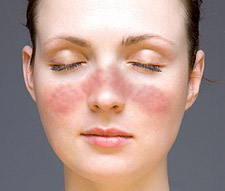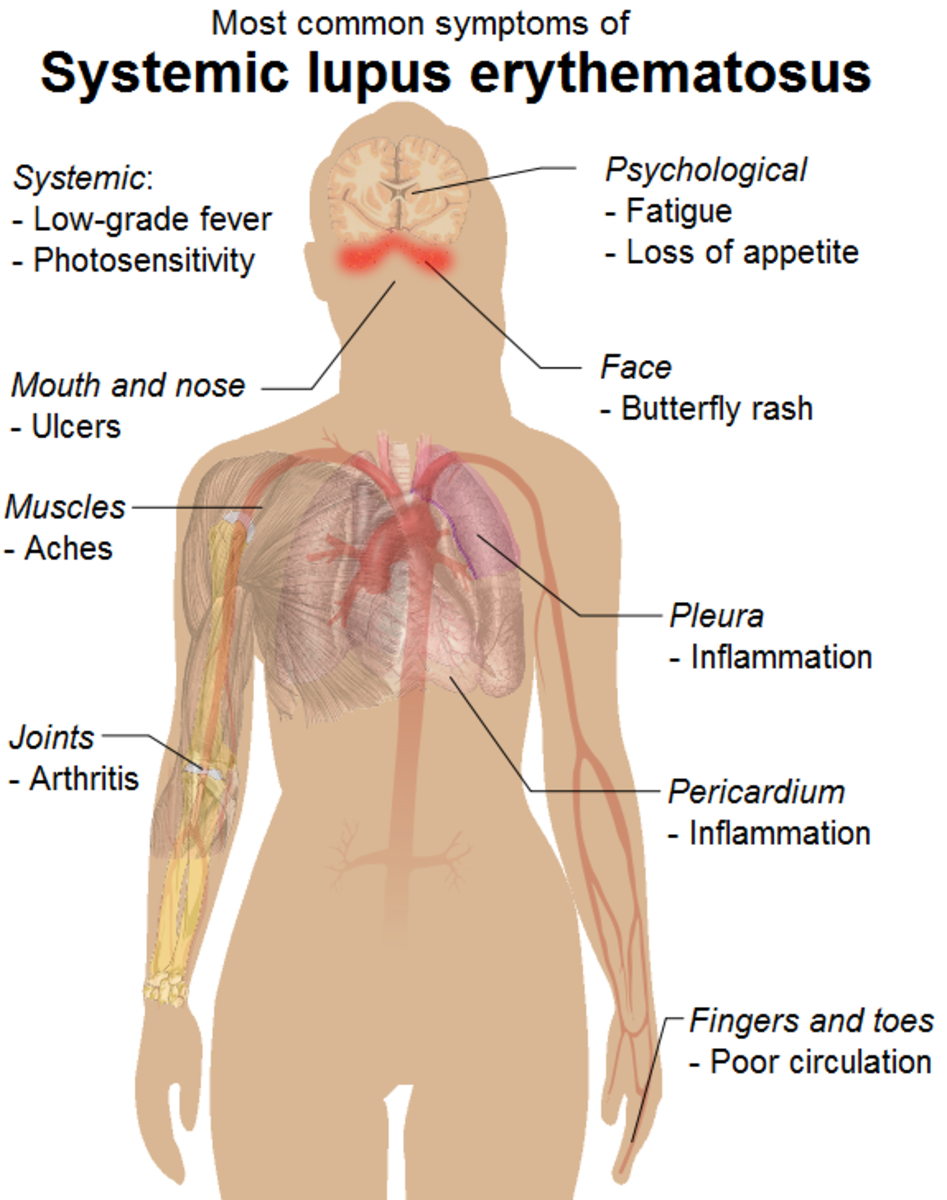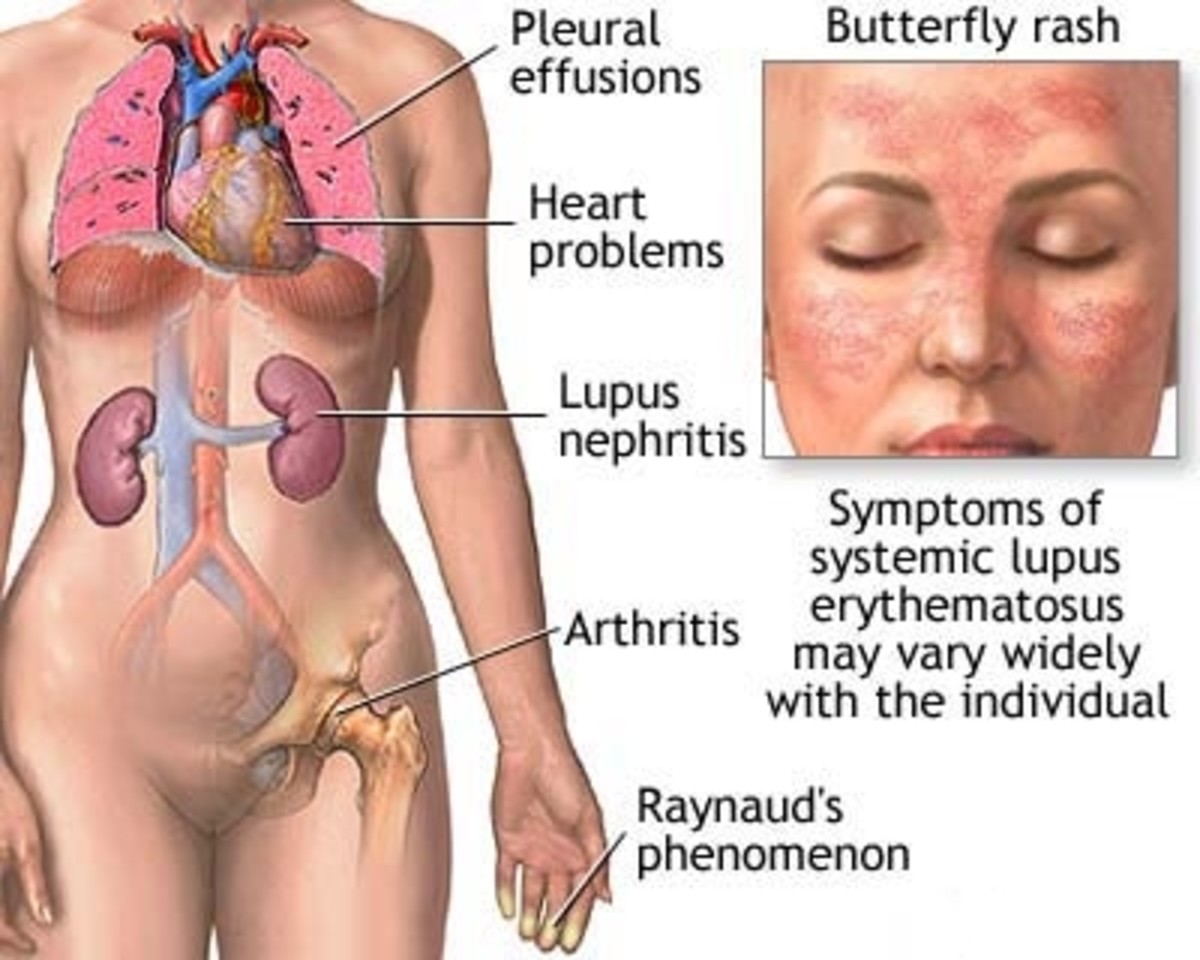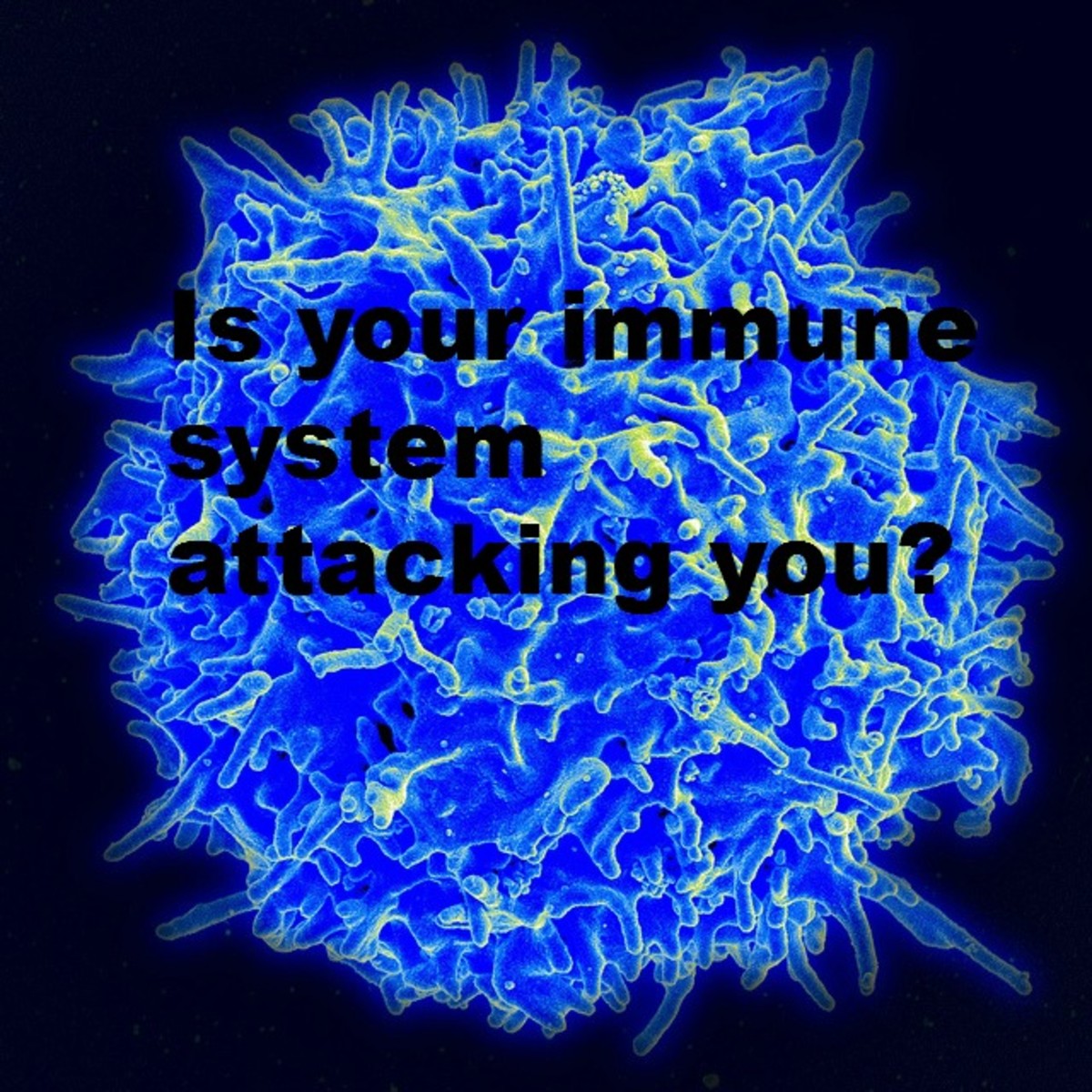Lupus and Alternative Treatments


Lupus is a chronic autoimmune disorder of the connective tissues affecting mostly women in child-bearing age. It comes in a couple of different forms – Discoid Lupus being more skin associated, and Systemic Lupus, which is more serious, and can affect any organ in the body. When you hear someone say, “I have lupus,” typically they are talking about the systemic form – Systemic Lupus Erythematosis.
Shortened to just “lupus,” the disease occurs in at least 1.5 million Americans, and is more prominent in women of color, although it can affect anyone of any race, sex, or age. In autoimmune disorders, something goes wrong with the body’s immune system. Specifically with lupus, the body’s immune system cannot tell the difference between foreign invaders like germs and bacteria, and your body’s healthy tissues. Basically, the body’s fight system ends up turning on its own army. The immune system releases antibodies to attack and destroy certain parts of the body, by random selection. The antibodies cause inflammation, damage, and pain. Put very simplistically, lupus is an overactive immune system. The severity is different in every case. Some people only have a mild case, with few symptoms, and others have a more serious and severe case involving many symptoms and affected organs, which can be life-threatening.
The symptoms of lupus have a very large range, and every case is different. They vary based on the severity of one’s illness, and the organs which are affected. Extreme fatigue is a symptom experienced by most patients, and is often the first indication of the illness. Other symptoms include weakness, arthritis, rash, intolerance to the sun, skin lesions, weight loss, join pain, fever, pleurisy, and pericarditis (inflammation of the lung and heart).
The exact cause is currently unknown, but science presents many theories. Some feel that hormones play some part in the illness because of the association of the disease and women. It has also been suggested that people have a pre-disposition to the disorder, involving genetics, and that environmental factors trigger the onset of the disease. Stress is also thought to be a cause, and also a trigger of flares in existing disease. In addition, the sun is thought to spark lupus symptoms, and is typically avoided by lupus patients.
Sadly, there is currently no cure for lupus. The disease has flares and remissions. Flares are periods of active disease, and active symptoms. Remissions are periods of dormant disease, without symptoms. With good treatment, most people lead full, active lives. There can be years of remission in between periods of symptoms.
In the initial onset of the disease, doctors typically prescribe a steroid therapy, often times Prednisone.This drug does wonders for lupus patients, but has some unwanted side-effects. It slows down the immune system, which in turn, reduces symptoms. Used long term, and in high doses, it can cause bone loss; short term, it can cause weight gain, mood changes, and sleep disturbances. Plaquenil is another drug frequently used with lupus. It is an anti-malarial drug that is usually tolerated well, with rare side effects, and can be very beneficial to the skin issues associated with the disorder.
Many patients find frustration in the lack of available drugs and treatments for lupus. Cancer drugs have been administered in severe cases, but with unpleasant side effects. This causes many patients to turn to alternative therapies for help.
What should I eat/not eat?
It has been suggested that people with lupus eat frequent smaller meals, and limit milk and beef products. A high fruits and vegetables diet has proven effective for many. Fish is also highly effective, as it contains omega-3 fatty acids. Supplements of this work well too. It has also been suggested to avoid alfalfa sprouts, as they contain L-canavanine sulfate which may promote the autoimmune process. Adhering to a whole foods diet is usually best.
Check out my hub, Fight Inflammation with Your Spice Rack – learn which herbs and spices to cook with, and how they can prevent and curb inflammation.
What about supplements?
Again, omega-3 fatty acids and flaxseed oil are helpful, and have been proven to lessen inflammation. Additionally, calcium is important to take due to the bone loss associated with the Prednisone treatment many lupus patients have endured. Vitamin D is suggested along with Calcium. A multi-vitamin is recommended, as all lupus patients should receive the normal nutrients suggested for anyone trying to stay healthy. Thus, vitamins C, A, E, and B are all very important in Lupus health. A good multi-vitamin should take care of these. Magnesium and Selenium are good supplements to add, if not already in your multi-vitamin. Selenium is thought to help the prevention of cancer, and is helpful in killing free radicals. Magnesium is important as it helps calcium to be absorbed by the body. Biotin is another that may not be found in a general multi-vitamin. It has been thought to reduce inflammation and aids in skin health. Co-enzyme Q10 is another popular lupus helper as it aids in healthy cell function, which is crucial to people with lupus in that their cells are often destroyed by their own immune systems. Echinacea should be avoided, as it is an immune system booster.
DHEA and Lupus:
Recent years’ science and studies have shown that the hormone DHEA may be a helpful alternative therapy for lupus. DHEA is made from cholesterol by the adrenal glands, and are thought to improve energy, strength, and immunity. A 12-month, double-blind placebo-controlled trial of 381 women with mild or moderate lupus evaluated the effects of DHEA at a dose of 200 mg daily. All participants seemed to improve, but DHEA was more effective than the placebo, reducing many symptoms of the disease.
Acupuncture:
In addition to diet and supplements, there are some other therapies to consider when treating lupus. Some people have had success with acupuncture, as it is thought to relieve pain, particularly associated with osteoarthritis and fibromyalgia. It has also been thought to ease depression.
Yoga & Pilates as Stress Management:
In addition to staying out of the sun, stress should be particularly avoided as well. Yoga and Pilates have been associated with reduction and prevention in stress, which makes it particularly useful to lupus patients. Managing the everyday stress in life, as well as the added stress a chronic disease brings, is crucial in managing symptoms and entering into remission. Exercise is important as well, as it provides the patient with all of the regular health benefits anyone would gain from exercising.
Depression:
It is not uncommon for a person with lupus to experience bouts of depression, sadness, anger, or confusion. While it can be a symptom of the disease itself, it is also manifested as a side effect of the symptoms of the disease. Some people feel depression due to the changes in their body and appearance, associated with lupus. Weight gain from the medication, hair loss, skin changes, etc, can all cause a person to feel depressed. Chronic pain is also often times associated with depression, as anyone can imagine – it gets old being in pain all the time. Support groups are helpful in dealing with the depression associated with lupus. Just talking with other people feeling similar, and going through the same thing, can be helpful. Often times family and friends don’t understand the disease, and it can be frustrating for both sides. Having a network of people experiencing the same issues can be very helpful in treatment. Talking to a therapist is also very useful. The support of family is always crucial, but sometimes a person needs actual professional help.
Living with lupus is a lifetime struggle, and it is not easy. There are ups and downs, and highs and lows. While it may be necessary to be on medication for a certain amount of time to manage the disease and get it under control, most patients want to explore other options for long-term treatment. Overall, maintaining a healthy lifestyle is most important, and is the first step. Quit smoking, don’t drink too much, and get enough sleep. Stay out of stressful situations as much as possible, and maintain a healthy work-life balance. Have a support group, take up a hobby, and try to enjoy life. Not every day will be great, but enjoy the ones that are. Live the good days to the absolute fullest, and don’t ever stop believing in yourself. The mind is a powerful thing, and attitude is everything. It is often not the cards you were dealt that matters, but what you do with the not so great hands. Having a positive attitude, and remaining hopeful is incredibly effective in treatment. It can always be worse. Just remember that life isn’t about waiting for the storms to pass, but learning to dance in the rain. Life is what you make of it!









